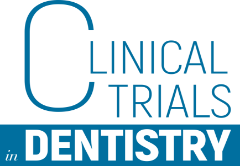Articles
THE PROGNOSIS OF ROOT CANAL THERAPY: A 20-YEAR FOLLOW-UP AMBISPECTIVE COHORT STUDY ON 411 PATIENTS WITH 1169 ENDODONTICALLY TREATED TEETH
PURPOSE. To evaluate the 20-year prognosis of endodontically treated/re-treated teeth in a population with multiple patient/tooth/site risk factors, and to investigate the prognostic factors that could predict the long-term outcome of endodontic therapy.
MATERIALS AND METHODS. This ambispective cohort study included patients who received primary/secondary root canal therapy from 1986 to 1998 performed by a single operator in a private practice. Outcomes measures were: tooth survival; clinical and radiographic success, as assessed by the treating clinician and an independent outcome assessor; and complications, as evaluated 20 years after treatment. Descriptive statistics, life table and Cox regression analyses for survival were fitted.
RESULTS. Four hundred and eleven patients (59% affected by advanced periodontitis) with 1169 endodontically treated teeth were identified (703 treatment, 466 retreatment). Dropouts at 20-year follow-up were 128 patients (31.1%) with 388 (33.2%) teeth. Forty teeth (3.4%) in 30 patients experienced endodontic complications, subsequently successfully treated. Clinical and radiographic evaluation revealed: complete clinical success in 542 teeth (69.7%), partial success in 10 (1.3%), partial failure in 75 (9.6%), and failure in 151 (19.4%) (10 extracted for endodontic reasons, 58 due to periodontitis, and 58 vertical fracture). Life table analysis revealed 86% tooth survival at 20-year follow-up. The chance of survival decreased with increasing patient age (P = 0.006). Re-treated teeth had better survival than treated teeth (P = 0.024) Canines and premolars had better chances of survival than incisors (P = 0.002 and P = 0.015, respectively). Teeth treated at two sittings (with intermediate medication) had reduced chances of survival as compared to teeth treated at one sitting (P = 0.027). Teeth treated for the first time for endodontic reasons exhibited a better chance of survival than teeth treated for periodontal and prosthetic reasons (P = 0.012).
CONCLUSIONS. The 20-year prognosis of endodontically treated/re-treated teeth as part of multidisciplinary rehabilitation of patients affected by advanced periodontitis is good.
Aging, two-stage endodontic treatment, and endodontic treatment for non-endodontic reasons are important predictors of failure.



